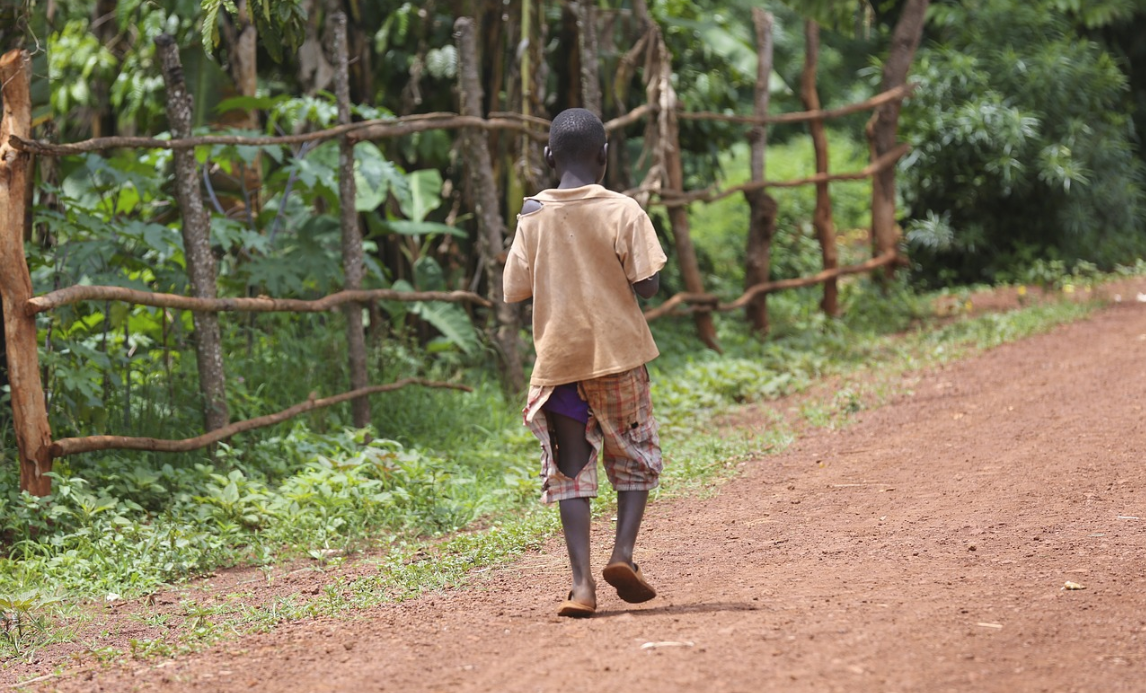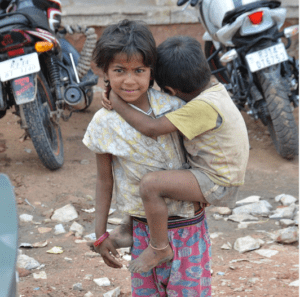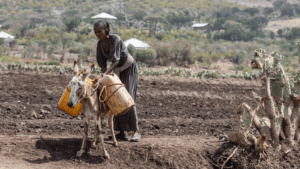It has long been reasoned that, globally speaking, all children matter, but sadly not every child is taken into consideration when it comes to collating data and surveying statistics on a national basis.
Some children tend to be omitted from national surveys
Regrettably, surveys tend not to be as inclusive as might be intended or presumed. For it is likely that strategic efforts to research the personal circumstances of those living on the fringes of their cultures will not reach far enough towards the periphery of society. For example, families which happen to live as squatters, or in unregistered slum housing, tend to be overlooked or not consulted. In other words, the poorest and most vulnerable children may not be fully represented in surveys of child poverty. The more apparently chaotic nature of domestic situations, the less chance there is of formulating an appropriate survey to assess the situation. UNICEF’s collaborative work alongside the government in Egypt presents an interesting example. This saw the development and successful use of a specifically tailored survey to assess the scale of child poverty within urban slums and unplanned housing.
 Why might some people not be included in surveys?
Why might some people not be included in surveys?
For one thing, it is not always administratively easy to consult with people who live in unofficial or unregistered circumstances. Nor might it be considered safe for researchers to reach out to consult a representative sample of these people. Statistically it is likely to be difficult to establish precisely what would comprise a representative sample group, wherever accurate census records do not exist. For example, in Madagascar there was no officially sanctioned census conducted between 1973 and 2018. This means that for decades many people’s living conditions and circumstances were officially unrecognized. Moreover, the people in question might not have wanted to participate in a national statistical survey.
Why people might be suspicious of statistical research
There are many people who remain undocumented members of their societies, who naturally fear officially registering with authorities because they believe that the process might compromise their personal safety and wellbeing. Although data research into child poverty is a broadly anonymous process, it might appear to be otherwise to the most vulnerable people who live on the edge of society and who do not want to risk formal contact with state officials or state appointed organisations. If people intended to benefit from the findings of research remain suspicious of it then it’s findings and any subsequent policy decisions are likely to be intrinsically flawed.
 People who live beyond the reach of researchers
People who live beyond the reach of researchers
People who live in an area that could be classified as a war zone, or where breakdowns in social order are thought to present high risks to researchers, are likely to be omitted from a mainstream consultation. Yet these are the very people whose status will likely fall into low socio-economic groups of which a high proportion would probably be classed as impoverished. If these people do not feature in consultations, then the statistical findings will not be representative of the reality across the country.
Nomadic peoples
People whose lifestyles are traditionally nomadic whether through their cultures or through their trades are also likely to be underrepresented in national surveys simply because they are not easy to locate or consult. Limited resources mean that researchers are unlikely to be able to monitor and sample nomadic peoples.
Street Children
Many children continue to live on the streets. Some are orphans, some have been abandoned, some have run away. It is not an easy prospect to conduct surveys which consult with them and represent their circumstances in accurate analysis. This is partly because of the unknown numbers involved. There is also a moral issue regarding the right of a child to give consent to data collection and representation, if no appropriate adult is available. Therefore, it is vital that the beneficial purposes of research surveys and the anonymous uses of data are carefully and sensitively explained.
 Other children beyond the scope of national research
Other children beyond the scope of national research
For a variety of reasons, some young people live in fairly informal households, in which children themselves act as the head of their family group. If research is conducted through a representative sample of households and schools these children are unlikely to be represented on a survey. There are inevitably some children who are removed altogether from their societies at the hands of child traffickers. These are essentially beyond the reach of any research programme, however comprehensive and exhaustive.
The scope of UNICEF’s Strategic Development Goals
There is a purposeful emphasis that arises within the SDGs in relation to children and child poverty, namely that no child should be left behind. This notion is important in informing the nature of research into child poverty. Innovative and all-embracing methods of data collection need to be rolled out and estimates need to be produced without excluding any of the groups cited above. Acknowledging these limitations in statistical research is an important milestone in achieving more representative data to inform strategic planning to counter child poverty.
 Missing numbers
Missing numbers
Household and school based surveys are inherently useful in assessing and clarifying levels of child poverty, preparing the ground for appropriately targeted legislation and relief campaigns. Without them much of the success in reducing child poverty on a global scale would have been impossible. However, it is vital to build in fail safe mechanisms to the research which ensures that the poorest and most vulnerable children are formally represented and taken into consideration. Sampling frameworks may have missed many millions of people and children from their data. In 2016, problems like these prompted over 175 organisations to write an open letter to the UN Statistical Commission on SDG indicators, arguing for the potential benefits of more culturally specific data collection and analysis to ensure that countries acknowledged and represented all children in their assessments of child poverty. Organisations like UNICEF have championed that sentiment ever since.
The benefits
While no data research can be one hundred percent accurate, and while accessibility may continue to be problematic, culturally sensitive research surveys can afford more than an overarching sense of the uncounted child populations who live in conditions like those cited above. Moreover, they can help to shed light on particular challenges they face. By consulting and engaging members of local populations more appropriate surveys can be designed and a deeper appreciation of target areas should be the result. Representatives from local communities will naturally contribute accurate knowledge of their social environments.
 ATD Fourth World in Antananarivo, Madagascar
ATD Fourth World in Antananarivo, Madagascar
Prior to the 2018 census, ADT Fourth World reached out to local communities in Antananarivo. Through local knowledge they ascertained that a majority of households living on a refuse dump in the north of the capital were unregistered with the state. By collaborating with households, ATD Fourth World was able to undertake mapping research which clarified circumstances of people living in the area. For instance, approximately 70% of those living on the dump were younger than twenty, and a majority did not have official documentation such as a birth certificate. Because local people were warmly engaged in the research, the process actually helped to bring people together, and garnered a sense of identity as well as information about common challenges which they faced.
Technology and its ethical use in research
Satellite imagery as well as mobile and GPS technology could potentially be employed to identify migrant and homeless groups. As mobile phone use continues to spread, there remains an ethical concern regarding data collection and observation which could expose some populations to political dangers. It goes without saying that vulnerable populations need to be overtly protected.
Conclusion
The 2016 open letter from those 175 organisations succinctly summarises the need for better research into child poverty and living conditions:
‘The post‐2015 global monitoring framework must establish mechanisms to integrate household-based data with additional information on children temporarily or permanently living outside of households… The post‐2015 global monitoring framework offers an opportunity to do more and better on behalf of the world’s most vulnerable children – ensuring, first and foremost, that they are no longer invisible.’
Essentially all children matter, but they will only benefit from research and new political initiatives if they are represented in bespoke surveys designed to aid them.





